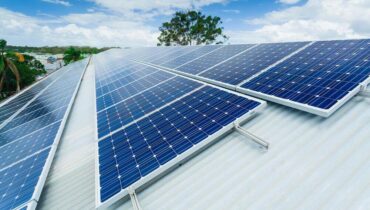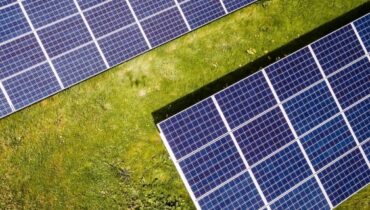Solar energy, also known as photovoltaic energy, is a renewable source of energy that is derived from the sun. It is a popular alternative to traditional fossil fuels, such as coal and oil, as it is clean, renewable, and abundant. Solar energy is harnessed through the use of solar panels, which convert sunlight into electricity. Solar energy has the potential to power homes, businesses, and even entire communities.
Table of Contents
Pros of Solar Energy
Renewable and Sustainable Energy Source
One of the main advantages of solar energy is that it is a renewable and sustainable energy source. Unlike fossil fuels, which are finite and will eventually run out, solar energy is abundant and will be available for billions of years. The sun is also a free and inexhaustible source of energy, making it a more affordable option in the long run.
Reduces Carbon Footprint
Solar energy is a clean source of energy that does not emit greenhouse gases or other harmful pollutants. By using solar energy, we can reduce our reliance on fossil fuels and mitigate the effects of climate change. Solar energy can also help us meet our climate targets by reducing our carbon footprint.
Low Maintenance Costs
Solar panels require very little maintenance, which means that the cost of upkeep is relatively low. Once installed, solar panels can last for up to 25 years, making them a long-term investment that can save you money in the long run.
Energy Independence
By generating your own electricity using solar energy, you can become more energy independent and reduce your reliance on traditional energy sources. This can be particularly useful in remote areas where access to the grid may be limited.
Cons of Solar Energy
High Upfront Costs
One of the main disadvantages of solar energy is the high upfront costs of installation. While solar panels can save you money in the long run, the initial investment can be prohibitive for many households and businesses.
Weather-Dependent
Solar energy production is dependent on the amount of sunlight available, which means that it can be less efficient on cloudy or rainy days. This can be a particular problem in areas that receive less sunlight or have long periods of overcast weather.
Land Use
Solar panels require a significant amount of land to generate enough energy to be economically viable. This can be a problem in densely populated areas where space is limited.
Disposal of Solar Panels
Solar panels contain toxic materials that can be harmful to the environment if not disposed of properly. The disposal of solar panels can be a challenge as they are difficult to recycle and can take up space in landfills.
Conclusion
Solar energy is a promising alternative to traditional energy sources, and it has the potential to play a significant role in reducing our reliance on fossil fuels. While there are some disadvantages to using solar energy, the benefits far outweigh the drawbacks. With ongoing advancements in technology and increasing investment in solar energy, we can look forward to a more sustainable and cleaner future.

